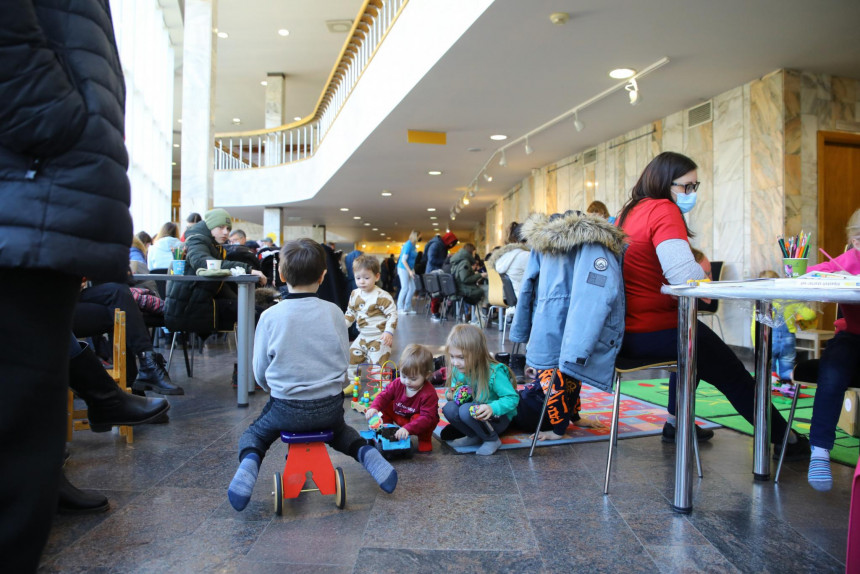Latvia triples the number of Ukrainian refugees it can take in

The government initially announced that it was ready to take in 10,000 refugees from Ukraine. At the time, Jānis Dombrava, a member of the board of the National Alliance (Nacionālā apvienība), told Neatkarīgā that the number of refugees should not be limited, and his call was partly heard. The Ministry of the Interior is currently preparing a plan to take in 30,000 refugees.
Arvils Ašeradens, representing New Unity (Jaunā Vienotība), made the announcement as the Saeima debated education options for Ukrainian refugee children.
The issue of the number of refugees already admitted and to be admitted was raised by Jānis Vucāns, representing the Greens and Farmers Union (Zaļo un zemnieku savienība), at a joint meeting of the Education, Culture and Science Committee and the Higher Education, Science and Innovation Subcommittee. Pointing out that Estonia already has more than 21,000 refugees and Lithuania more than 27,000, he asked the Minister of Education and Science, Anita Muižniece, whether it was possible that the country had not yet identified all the refugees entering its territory. "Our 10,000 are the outliers, might it not be the case that we don't know about many?" asked the MP.
The Minister was able to say that, according to the data collected on Wednesday morning, more than 12,000 had arrived in Latvia, but that the government was working on a plan to make it possible to take in more refugees. At the end of the meeting, however, the head of the Education, Culture and Science Committee, Ašeradens, had already said that a plan was being prepared to take in 30,000.
Experience shows that up to 45% of refugees are children, who need to be provided with opportunities to continue their education. And although an average of 300 Ukrainian children a day need to be found the option to study, the education system has so far experienced no problems. According to Muižniece, the Latvian education system is ready to receive 23,000 pupils from Ukraine. 4,600 Ukrainians attend Latvian schools and kindergartens.
Currently, refugees continue their education both in minority schools and in schools where teaching is conducted only in Latvian. The leader of the National Alliance does not really like this arrangement and called for it to be changed.
"My conviction is that Ukrainian children should study in Latvian schools, where the curriculum is taught in the state language. We see and cannot ignore the statistics. (..) In Russian-speaking families, support for Ukraine is much more ambiguous, with only 20% expressing support for Ukraine. Not everything can be controlled by teachers, and what happens in the family can be brought to school (..) My conviction is that minority schools are a bygone that we need to get rid of," said Dzintars.
Muižniece, representing the Conservatives (Konservatīvie), supported Dzintars' opinion and pointed out that, given that the school year ends in a few months, this is a short-term solution. The long-term solution, if necessary, would be to teach in Latvian language schools. At the same time, the Minister stressed that at least 50% of the curriculum in minority schools is also in Latvian.
However, the inclusion of Ukrainian children in our education system is not entirely without complications. For example, Jeļena Vediščeva, head of the Latvian Association of Heads of Education, warned that there is a "total shortage" of Latvian language teachers. The differences between the Latvian and Ukrainian education systems also create difficulties - in Ukraine, pupils' knowledge is assessed on a 12-point system, they spend nine years in primary school and two in secondary school. It is therefore difficult to figure out how to effectively integrate Ukrainian refugees into our education system.
However, the Minister of Education reassured us that these issues are being worked on in cooperation with the Ukrainian Ministry of Education and will be resolved by the start of the next school year. At the same time, politicians expressed the hope that refugees will be able to return home earlier.
*****
Be the first to read interesting news from Latvia and the world by joining our Telegram and Signal channels.
